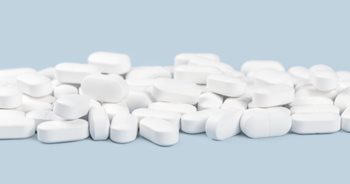
Caffeine Shown to Affect Dopamine Function in Patients With Parkinson’s Disease
Regular high caffeine consumption affects dopamine function in patients with Parkinson's disease, shows a new international study led by the University of Turku and Turku University Hospital in Finland. Caffeine consumption before undergoing diagnostic brain dopamine imaging may also affect the imaging results.
Previous research has shown that regular caffeine intake is associated with a reduced risk of developing Parkinson's disease. However, there is limited research on the effects of caffeine on disease progression in patients who have already been diagnosed.
A follow-up study led by the University of Turku and Turku University Hospital (Tyks) in Finland examined how caffeine consumption affects brain dopamine function over an extended period in patients diagnosed with Parkinson's disease. The dopamine function of the brain was assessed with single photon emission computed tomography (SPECT) to measure dopamine transporter (DAT) binding.
"The association between high caffeine consumption and a reduced risk for Parkinson's disease has been observed in epidemiological studies. However, our study is the first to focus on the effects of caffeine on disease progression and symptoms in relation to dopamine function in Parkinson's disease," says Valtteri Kaasinen, Professor of Neurology at the University of Turku and principal investigator of the study.
Caffeine consumption had no effect on Parkinson's symptoms
A clinical study compared 163 patients with early-stage Parkinson's disease to 40 healthy controls. The examinations and imaging were conducted on two occasions for a subsample, with an average interval of six years between the first and second imaging session. Changes in brain dopamine transporter binding were compared with patients' caffeine consumption, which was assessed both by a validated questionnaire and by determining concentrations of caffeine and its metabolites in blood samples.
The findings revealed that patients with a high caffeine consumption exhibited a 8.3-15.4% greater decrease in dopamine transporter binding compared to those with a low caffeine consumption. However, the observed decline in dopamine function is unlikely to be due to a greater reduction in dopamine neurons following caffeine consumption. Rather, it is more likely to be a downregulatory compensatory mechanism in the brain that has also been observed in healthy individuals following caffeine and other stimulant use.
"While caffeine may offer certain benefits in reducing risk of Parkinson's disease, our study suggests that high caffeine intake has no benefit on the dopamine systems in already diagnosed patients. A high caffeine intake did not result in reduced symptoms of the disease, such as improved motor function," says Kaasinen.
Another significant finding of the study was the observation that a recent dose of caffeine, for example in the morning of the imaging session, temporarily increases the person's DAT binding values. This could potentially complicate the interpretation of clinically commonly used brain DAT imaging results. The research results suggest that patients should refrain from consuming coffee and caffeine for 24 hours before undergoing diagnostic DAT imaging.
Original article from Science Daily.
------------------------------------------------------------------------------------------------
Like free stuff? Us too! Read below to find out how you can get 3 free CNE courses!
It is imperative that nurses involved in the care and management of patients with Iron Deficiency Anemia are familiar with the disease state, understand intravenous iron infusion administration protocols, and monitoring of potential complications that may arise with specialty infusions. Pedagogy provides the means to educate nurses on this topic with three courses dedicated to Iron Deficiency Anemia and the treatment of this disorder with parenteral iron preparations. These courses include current best practices for ideal patient outcomes and safety.
- Iron Infusion for the Treatment of Iron Deficiency Anemia
- Iron Deficiency Associated with Pregnancy
- Iron Deficiency in the Bariatric Patient
Through an independent educational grant from Pharmacosmos Therapeutics Inc, we are offering the below courses at no charge!
To take advantage of this offering, register or sign in to your Pedagogy account, and click My Courses to access your dashboard. In the Register a New Course box, find the course title in the drop-down menu and click Add to List!

